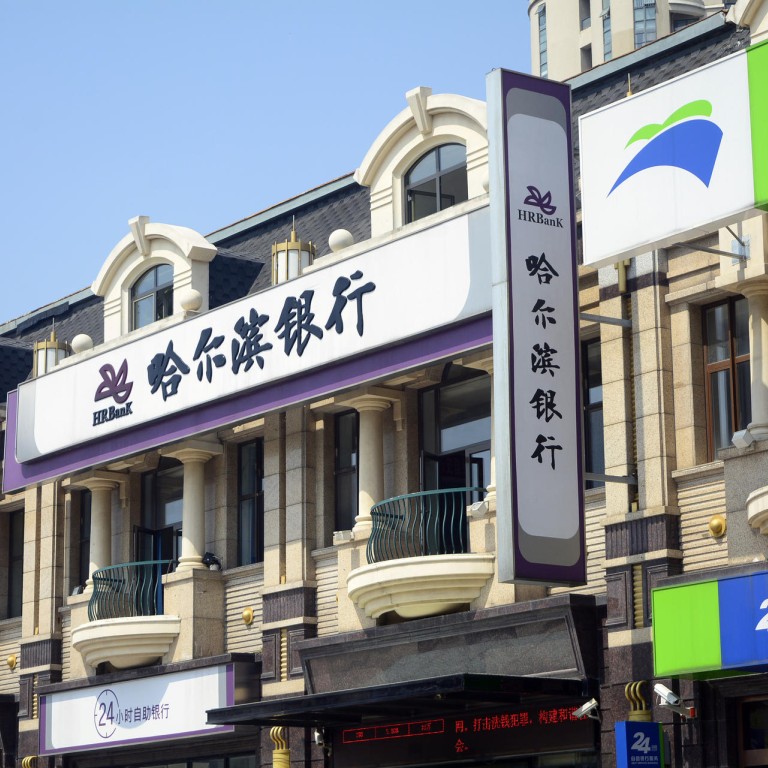
Harbin Bank prices IPO at low end, with secretive shareholder seen in background
Harbin Bank poised to raise HK$8.76 billion in float as sources confirm secretive businessman a minority shareholder in the mainland lender
Harbin Bank, the first lender to go public in Hong Kong since China Everbright Bank listed in December last year, has priced its initial public offering near the bottom of its indicative range.
Although that might not be encouraging for other mainland banks lining up for a listing, the offering will still be the biggest in Asia so far this year.
Harbin Bank set the price of its shares at HK$2.90 - from a range between HK$2.89 and HK$3.33 - allowing it to raise HK$8.76 billion, three bankers with knowledge of the matter said yesterday.
One of the biggest challenges facing the small city-focused lender in the capital of Heilongjiang province is not its issued price but the transparency of its corporate governance and shareholder structure.
Two sources confirmed to the long-time market rumours that a secretive mainland businessman, reputed for his business practices and investment record in the domestic capital markets, is a minority shareholder of Harbin Bank through investment vehicles directly or indirectly owned by him.
Xiao Jianhua, born in 1971 in Shandong province, founded and controls the low-profile but immensely powerful Beijing-based Tomorrow Holdings, which has investments in financial companies ranging from banks to securities houses.
Harbin Bank was one of his early investments.
Xiao, said to be a financial wizard, is believed to control up to 30 per cent of Harbin Bank through different financial companies under capital-rich Tomorrow, making the group the second-largest shareholder after the bank's parent firm, an investment arm of the Harbin city government.
In a recent media briefing on its initial public offering, Harbin Bank declined to answer any questions about Xiao's role.
Hong Kong listing rules do not require companies to reveal the investors behind the companies which own shareholdings or even the controlling stakes.
In 2012, the media reported that Xiao played a role in Thai conglomerate Charoen Pokphand's purchase of HSBC's stake in Ping An Insurance. CP denied the reports.
In 2007, when Pacific Securities, partly owned by Tomorrow, went public in Shanghai, financial irregularities were discovered in the listing process and eventually cost a China Securities Regulatory Commission vice-chairman his job.
Xiao escaped unscathed but has been mostly living outside the mainland since, industry sources say.
The pricing of Harbin Bank's shares at the low end may reduce the enthusiasm of bigger mainland banks eager for a Hong Kong listing this year. Such hopefuls include the Bank of Shanghai and Guangfa Bank, previously known as Guangdong Development Bank.
However, one of the bankers, who declined to be named, said: "It's actually not too bad. At least the bank has seen strong interest from cornerstone investors."
Even before Harbin Bank opened its book for public subscriptions, it had lined up seven institutional investors to take up US$510 million of the share offering.
They include mainland private equity investor Citic Capital - partly owned by sovereign wealth fund China Investment Corp - which has agreed to take a US$150 million stake, and Fubon Life Insurance - a unit of Fubon Financial, one of Taiwan's largest financial conglomerates - which will subscribe for US$290 million worth of shares.
To follow the reporter on Twitter: @george_chen

